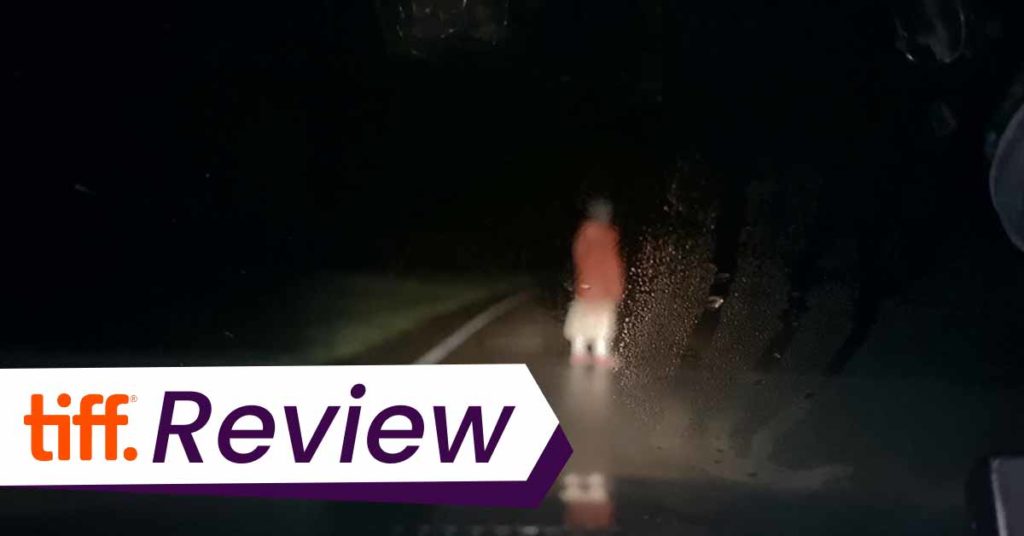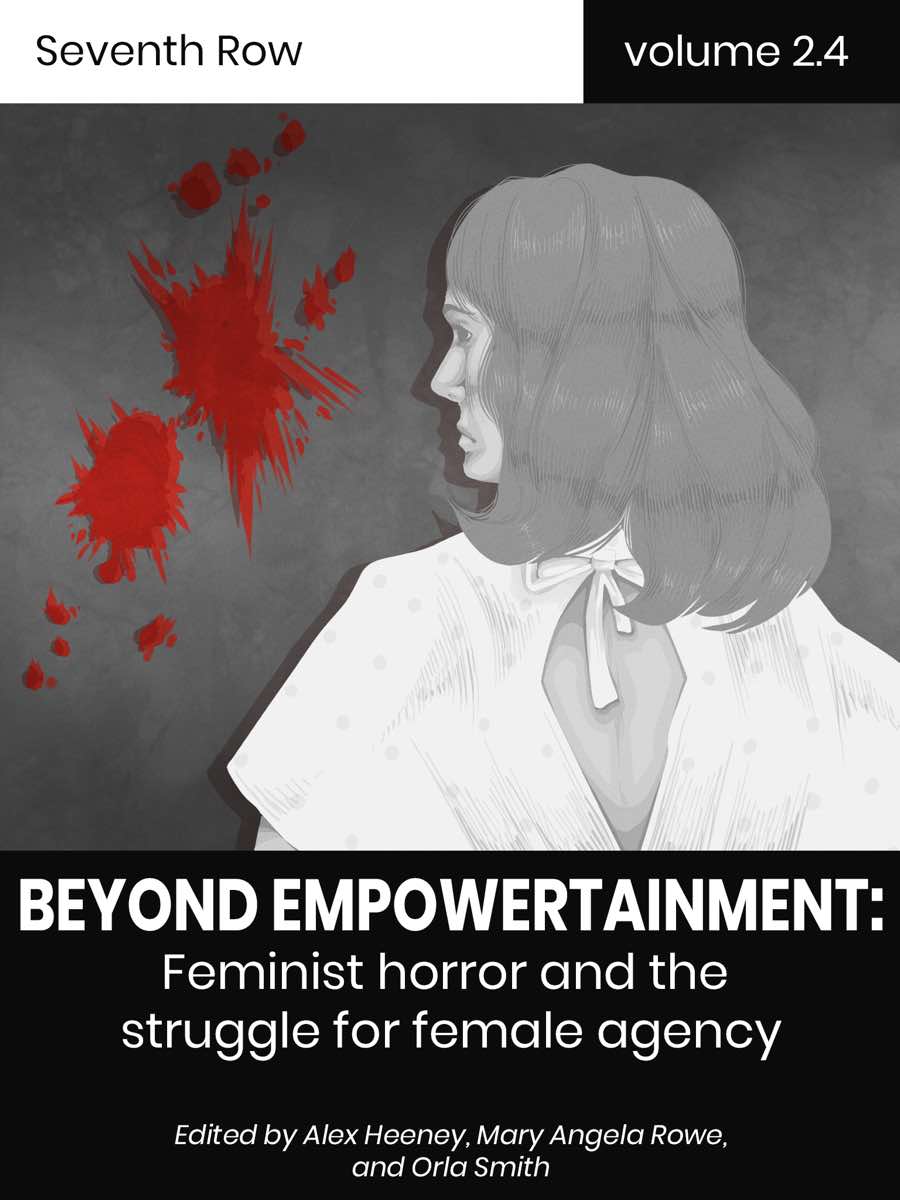Host director Rob Savage returns with DASHCAM, a new pandemic horror film, featuring a main character as evil as the creatures attacking her.
Click here to find all of our TIFF 2021 coverage and sign up to our TIFF newsletter.

We’re running a daily TIFF 2021 newsletter to give you all our reactions to the best new films as they premiere. Click here to sign up for free.
Last year, Rob Savage made one of the most entertaining pandemic films to date, Host, a horror film set entirely on a Zoom screen. It was your garden variety found footage (or, to be more specific, Screen Life) film, but with better performances and a real knack for how to tease out tension. Now, Savage is back with DASHCAM, another pandemic-set horror film that’s also in the Screen Life genre: it plays out entirely on a character’s phone screen.
The greatest trick of DASHCAM is, unlike most found footage or Screen Life films, the central character is just as memorable as the central filmmaking gimmick. From the very start, Annie (Annie Hardy) is almost unbearable. She’s an alt-right MAGA hat wearer who calls people “libtards.” It’s the middle of the pandemic, but the only time she covers her face is in one scene where she dons a Lana Del Rey-style mesh mask (otherwise she can be seen yelling at restaurant workers who insist she mask up). Basically, she’s an embodiment of all the worst traits in society that have intensified during COVID. And to make matters worse, she has a livestream called Band Car where she freestyle raps while driving, like Carpool Karaoke but somehow worse.
DASHCAM takes place entirely on the Band Car livestream page on Annie’s phone, as she loudly and obnoxiously walks us through her trip from America to the UK, where she visits her ex-band mate Stretch (Amar Chadha-Patel). It’s amazing how true to life the comments section of Annie’s stream is: anyone who’s ever been on the internet will recognise these kinds of crude, irreverent comments, fired off thoughtlessly by bored viewers. The film is actually at its most entertaining before it launches into full-fledged horror. Watching Annie’s antics, and observing how the comments and people in real life react to her, falls on just right the side of the line between morbidly hilarious and unwatchable. The comments section acts as a kind of chorus, showing us how the nonsensical tirades of people like Annie are echoed by the irreverent internet users who follow them.
Then DASHCAM goes full horror — and I mean full. When Annie visits a restaurant past closing time, she comes across a woman tending for a sick looking old lady. The woman begs Annie to take the sick lady to a safe location, in exchange for cash, and Annie, who’s no stranger to impulsive and ill-advised decisions, agrees. This being a Blumhouse film, things go downhill from there. This film isn’t for the faint of heart: it’s incredibly gory, with really impressive special effects that feel spine-tinglingly real, partly because viewing them through a livestream means you can’t always make things out perfectly.
I had a lot of fun with DASHCAM, but I wished it was able to combine its thrills and its social commentary into something more cohesive. Unfortunately, the final act of the film delivers fun shocks but not much else. The film never manages to pay off the social commentary it sets up by having Annie’s character be a raging conservative. Sure, it’s partly her selfish actions that set off a horrific chain of events, but even that is only partly true, and barely explored.
Stay in the know about TIFF 2021 films like DASHCAM.
Subscribe to Seventh Row’s TIFF newsletter.
We’re running a daily newsletter during the festival: every morning, we’ll send subscribers a dispatch about all the new films we’re watching, good and bad, to let you know what’s worth keeping an eye on.
Click here to subscribe to the TIFF 2021 newsletter.


